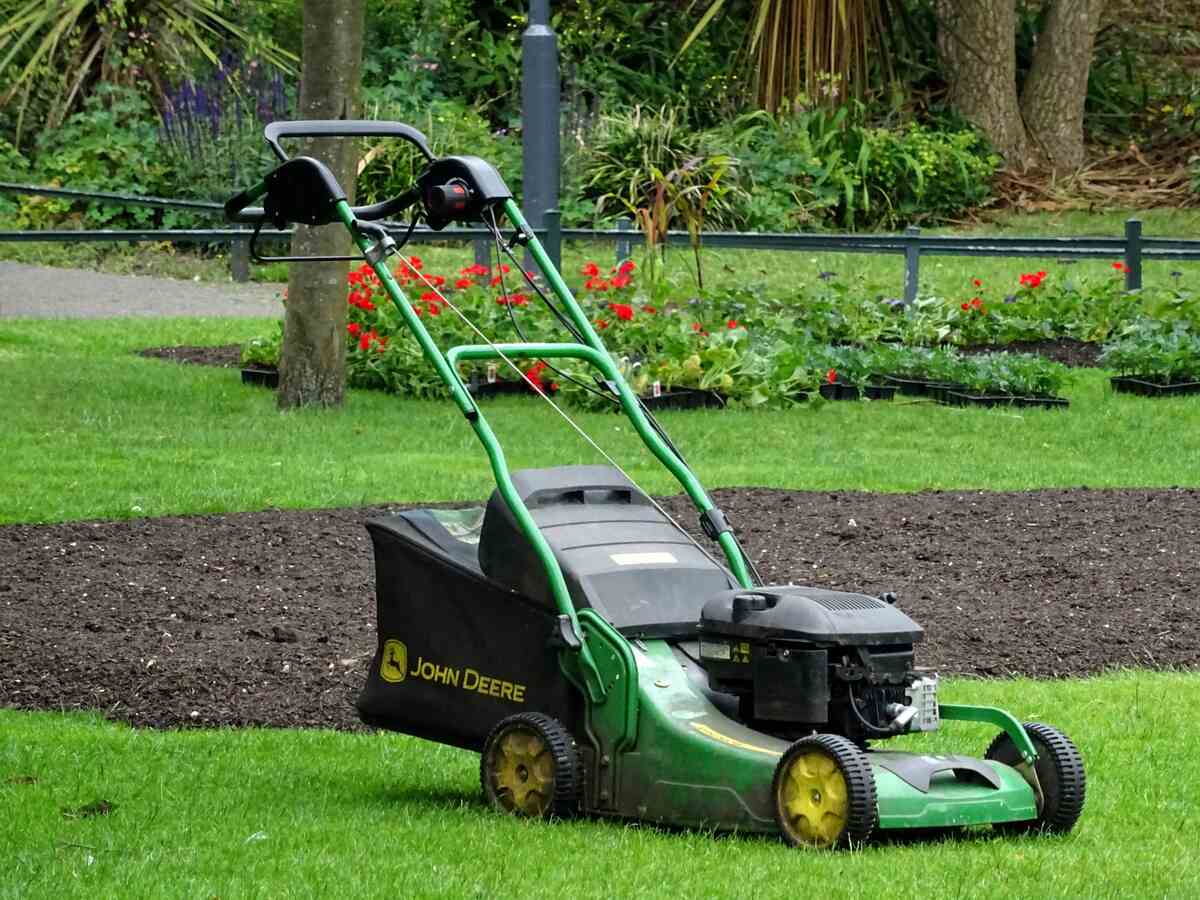
Goodbye spring, hello summer! Although most of the heavy lawn work has been done, Jacksonville homeowners shouldn’t neglect their lawns during summertime. With rising temperatures and frequent rain, you have to change up your lawn care routine a little bit to keep a healthy lawn. Here are a few summer lawn care tips for Jacksonville homeowners:
Irrigate Responsibly
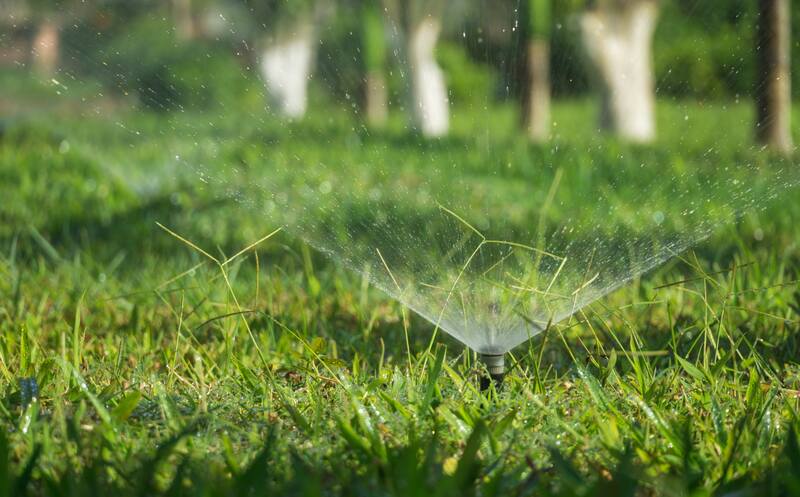
Jacksonville summers aren’t just hot, they’re also quite rainy. So, while your lawn might get more thirsty this summer, you have to be careful about how you irrigate. Overwatering is much worse than underwatering when it comes to turf. Many Jacksonville turfgrasses can handle drought but become more susceptible to diseases and weeds when overwatered.
Consider turning off any automatic irrigation systems you have – sprinklers come to mind – especially if your area is getting a lot of rain. Keeping Jacksonville’s watering restrictions in mind, only let the sprinklers run if your grass is showing these signs:
- Grass blades folding up
- Wilting
- Grass turning blue-gray
- Footprints don’t disappear after you walk on the grass
If it rained recently, or if rain seems likely in the coming days, then you should probably hold off on watering your lawn. Hand-water only if your yard really needs it.
Mow Properly
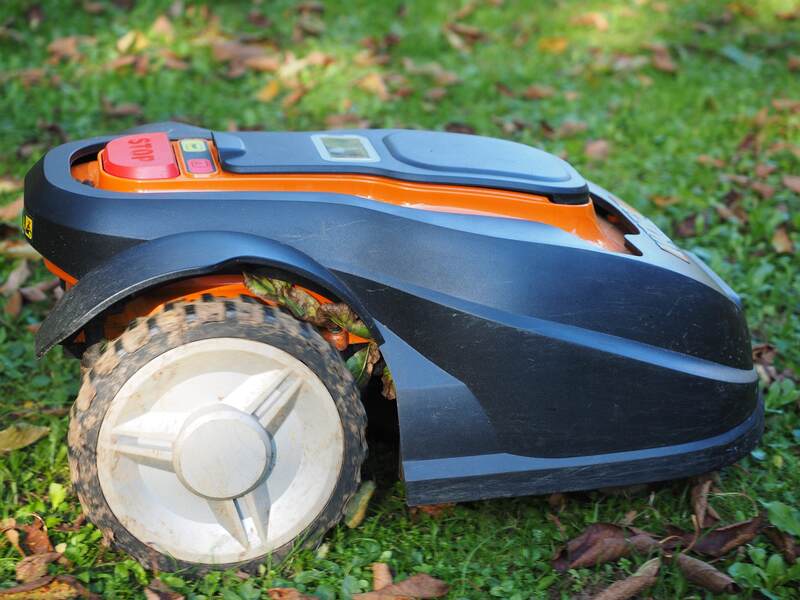
Lawn mowing will contribute greatly to your turf’s health. As with any time of year, you have to mow your lawn to the proper height and make sure that you’re not taking off more than one-third of the turf’s height whenever you mow.
Avoid mowing your lawn too short, as this can stress it out. Properly mowed lawns have strong root systems and shade out weeds. Make sure to alternate the direction every time you mow to promote good growth.
If you use a rotary mower, don’t mow when your grass is wet. The wet grass clumps clog the mower’s blades, resulting in an uneven and sloppy cut that hurts your turf. On the flip side, you should also avoid mowing your lawn if it’s under severe drought stress, as it can’t recover as quickly.
Always keep your mower blades sharp to minimize damage. Mowing a lawn with dull blades can leave your grass susceptible to fungal lawn diseases.
Stamp Out Pests
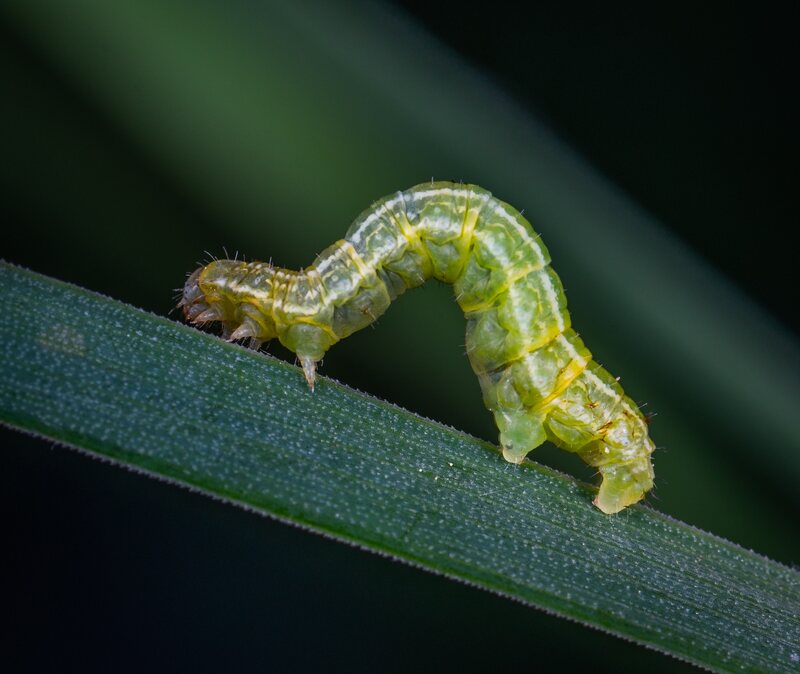
Summer is the prime pest control season for Jacksonville’s lawn pests. You should watch out for chinch bugs and lawn caterpillars, such as tropical sod webworms and fall armyworms. These bugs love munching on warm-season grass types that thrive in Jacksonville. Check your lawn for these signs, which might indicate a pest problem:
- Patches of thinning grass
- Yellow and brown patches of grass
- Grass that can easily be pulled up
Inspect your lawn at least once a week. If you find any pests or signs of infestation, spot-treat the affected area or hand-pick them if you can. Always read the label of any pesticides you decide to use, as some can’t be used when it’s scorching out. For more natural options, see our guide to eco-friendly pest control for Jacksonville.
Watch For Lawn Diseases
Being hot, humid, and rainy, Florida summers are a breeding ground for lawn diseases, especially if the turf is already stressed and overwatered. Many are prevalent in the summer, but a few of these lawn diseases are year-round, too, even in the winter. Here are a few of these lawn diseases:
- Pythium root rot
- Take-all root rot
- Cercospora leaf spot
- Gray leaf spot (St. Augustinegrass only)
- Helminthosporium leaf spot (very serious on Bermudagrass lawns)
- Rhizoctonia leaf and sheath spot
- Slime molds
- Fairy ring
If you discover that your turf is showing signs of disease – like leaf spots, yellowing, or dying – you should take the necessary steps to stamp out the fungus immediately. Always read the label of any chemical treatments you plan to use.
Remove Weeds Correctly
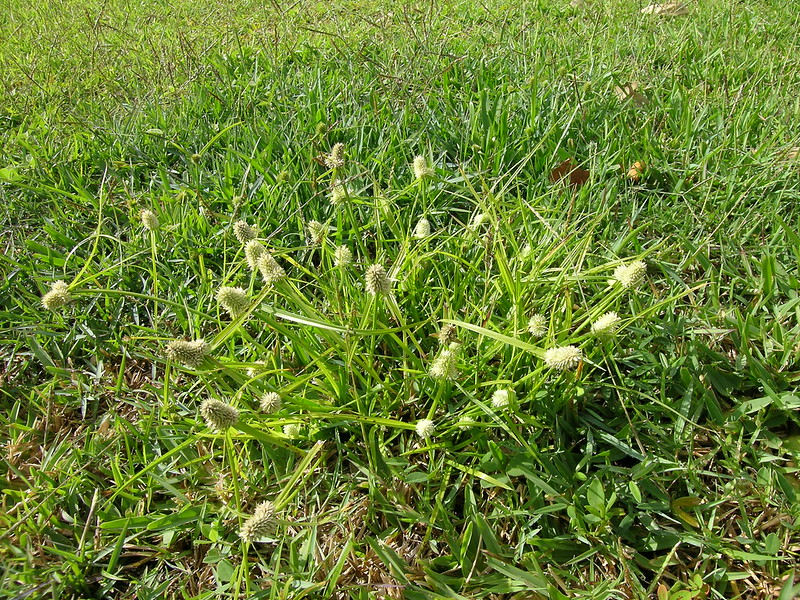
Many common Jacksonville weeds thrive in the summer, especially on overwatered lawns. If your Jacksonville yard has a weed problem, it’s better to nip the problem in the bud before it grows too big; hand-pick any weeds you find when checking your lawn.
If you plan to use a weed control product, make sure to read the label. Many herbicides can’t be used during scorching temperatures, as they can severely damage the turf.
If your weed problem is severe, you should use a pre-emergent herbicide next year in the spring. This will prevent weeds that show up in the summer.
Avoid Fertilization
You don’t want to fertilize your lawn in the summer, especially if it’s already growing quickly. New growth during the hot summer months will most likely burn, hurting your lawn. However, if your lawn is looking a little dull, you can apply iron sulfide to green it up. Avoid nitrogen fertilizers, as they’ll encourage your grass to grow.
If you want to apply fertilizer, make sure to check the rain forecast first. Don’t fertilize if you’re expecting rain, or else it can wash away. This fertilizer runoff will be bad for natural bodies of water like the St. Johns River.
FAQ
The best times to fertilize your lawn are spring and fall. In fact, fertilization – along with aeration and overseeding – is an important part of spring lawn maintenance.
While you really can’t avoid exposing your turf to the heat, your other plants might appreciate some mulch. Mulch can insulate your plants from the hot sun.
There are many native plants that thrive in Florida summers. These plants are well-adapted to heat and drought. You can read our article on the best native Jacksonville flowers for ideas.
In Jacksonville, shade trees can help cool down homes. Shade trees can also protect some of your plants from the scorching sun.
Your grass clippings can actually be a free slow-release fertilizer. Instead of bagging your clippings, spread them out on your lawn. They will release nutrients as they decompose.
Keep Your Jacksonville Lawn Healthy This Summer
The heat, humidity, and rain that come with the summertime may pose a challenge to Jacksonville lawns. These conditions can cause problems like weeds, pests, and lawn diseases.
Stay on top of your summer lawn care to prevent these issues – or, if that’s too much work for you, you can hire a local lawn care company to keep your grass lush in the Florida heat. Connect with a professional lawn care service in Jacksonville today!
Main Image Credit: Lawn mower / PublicDomainPictures